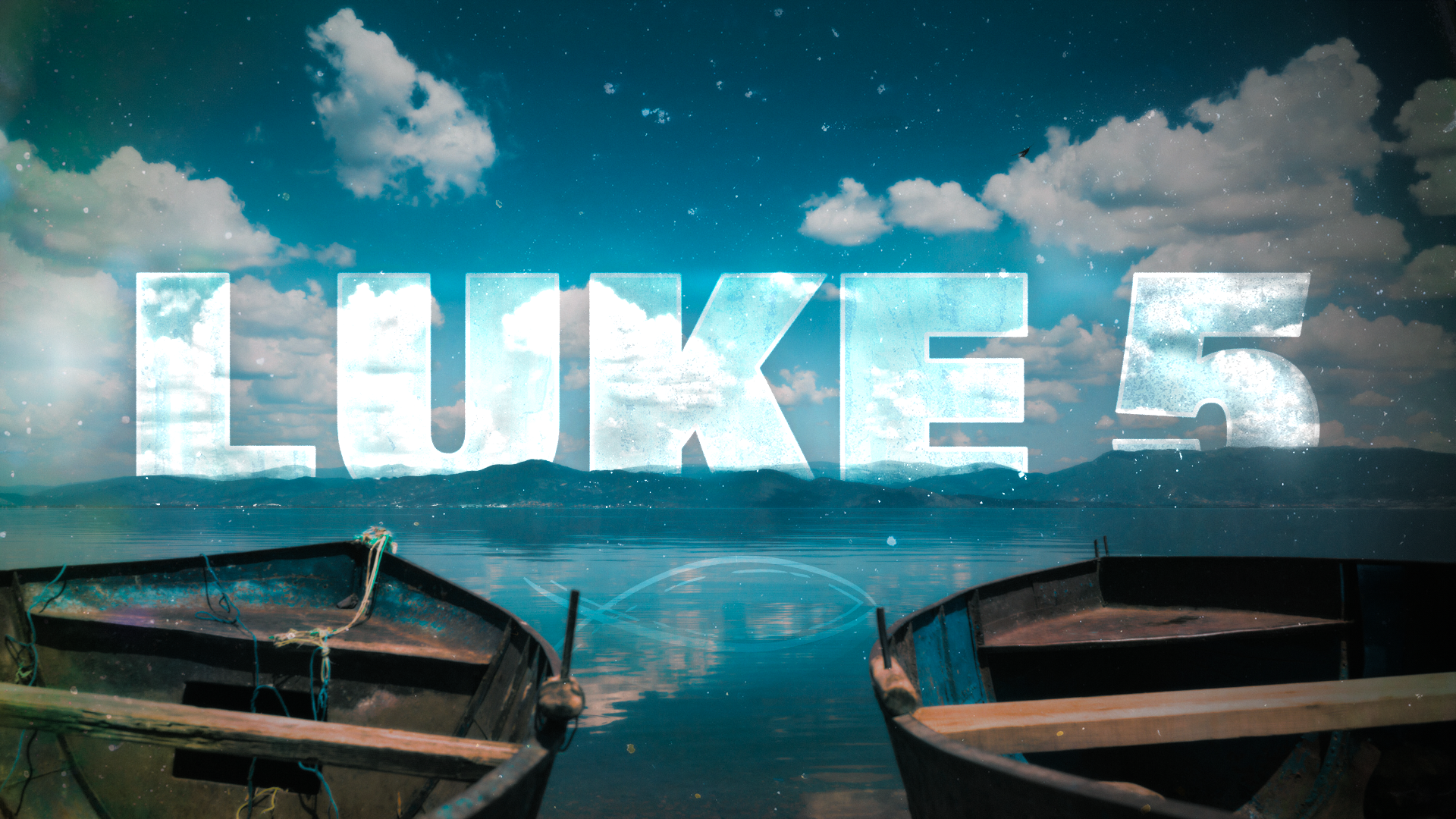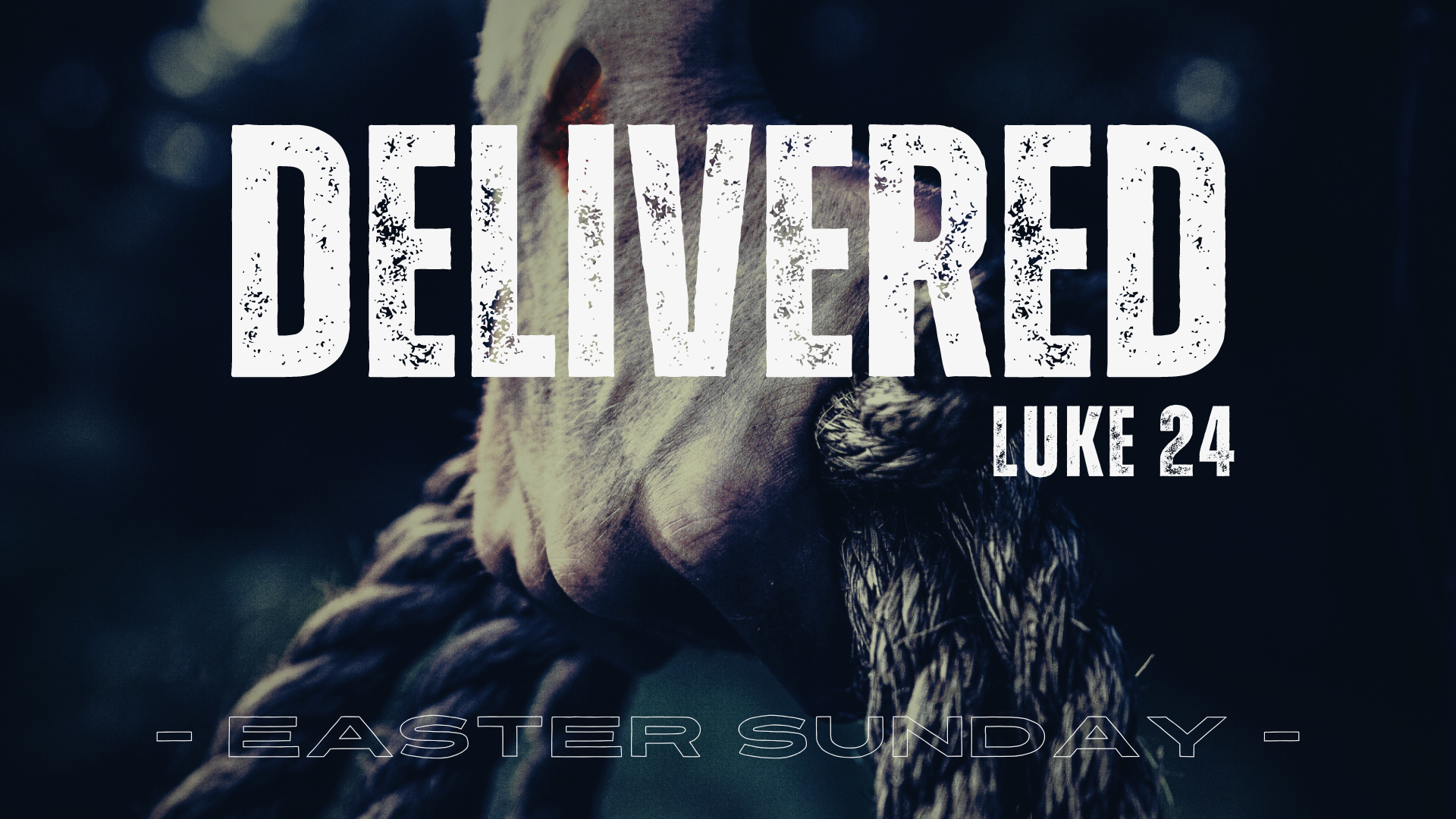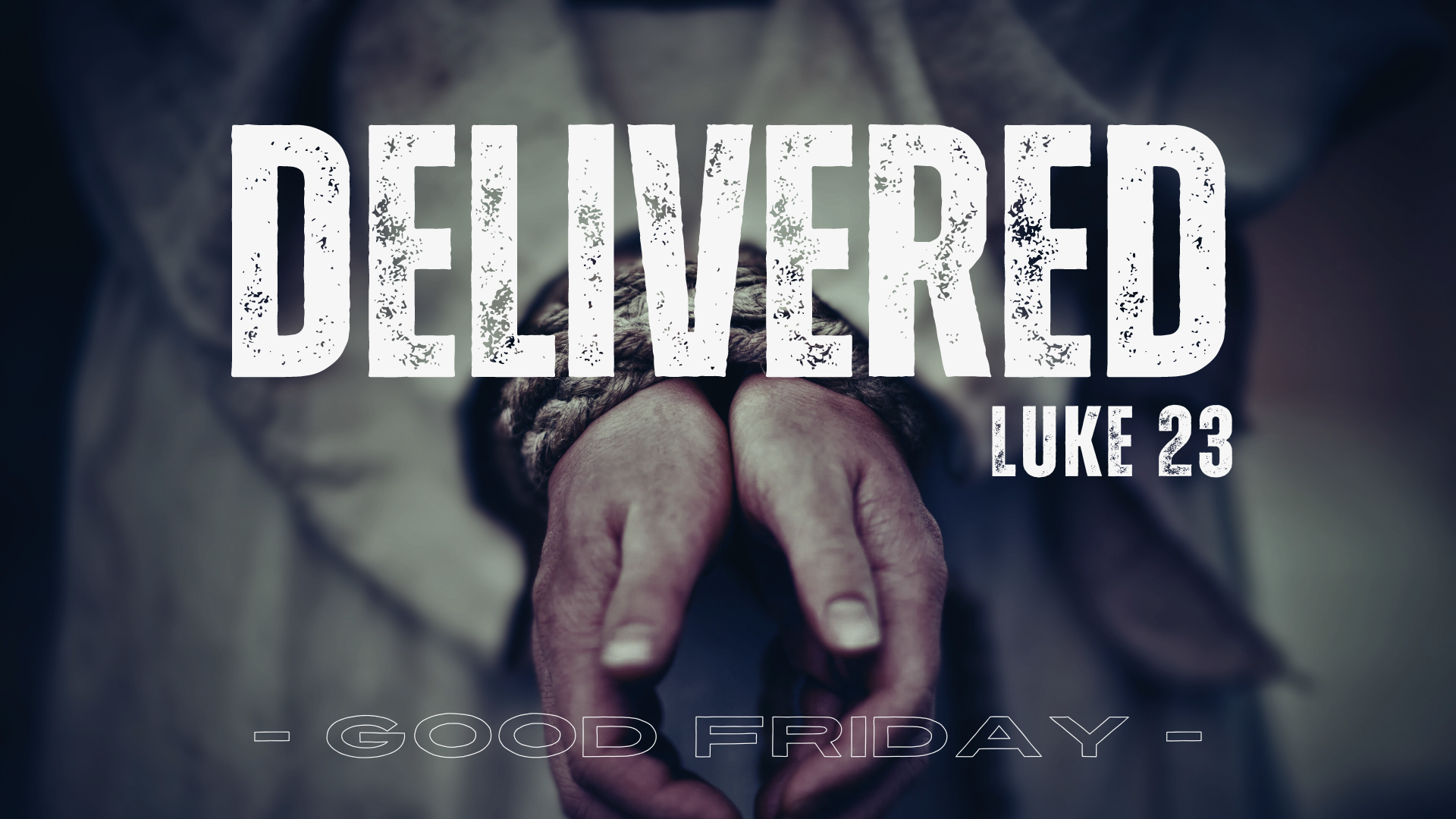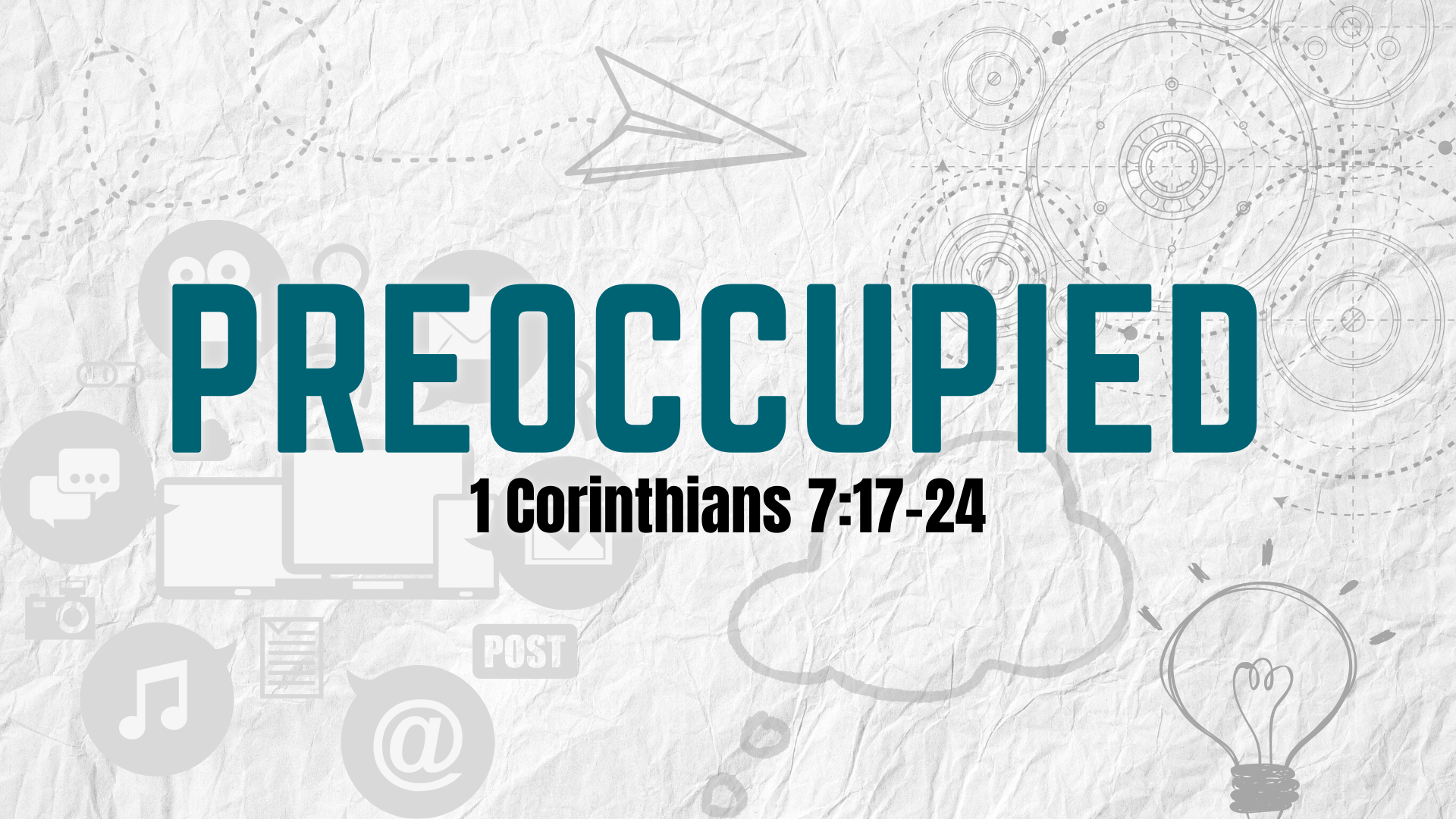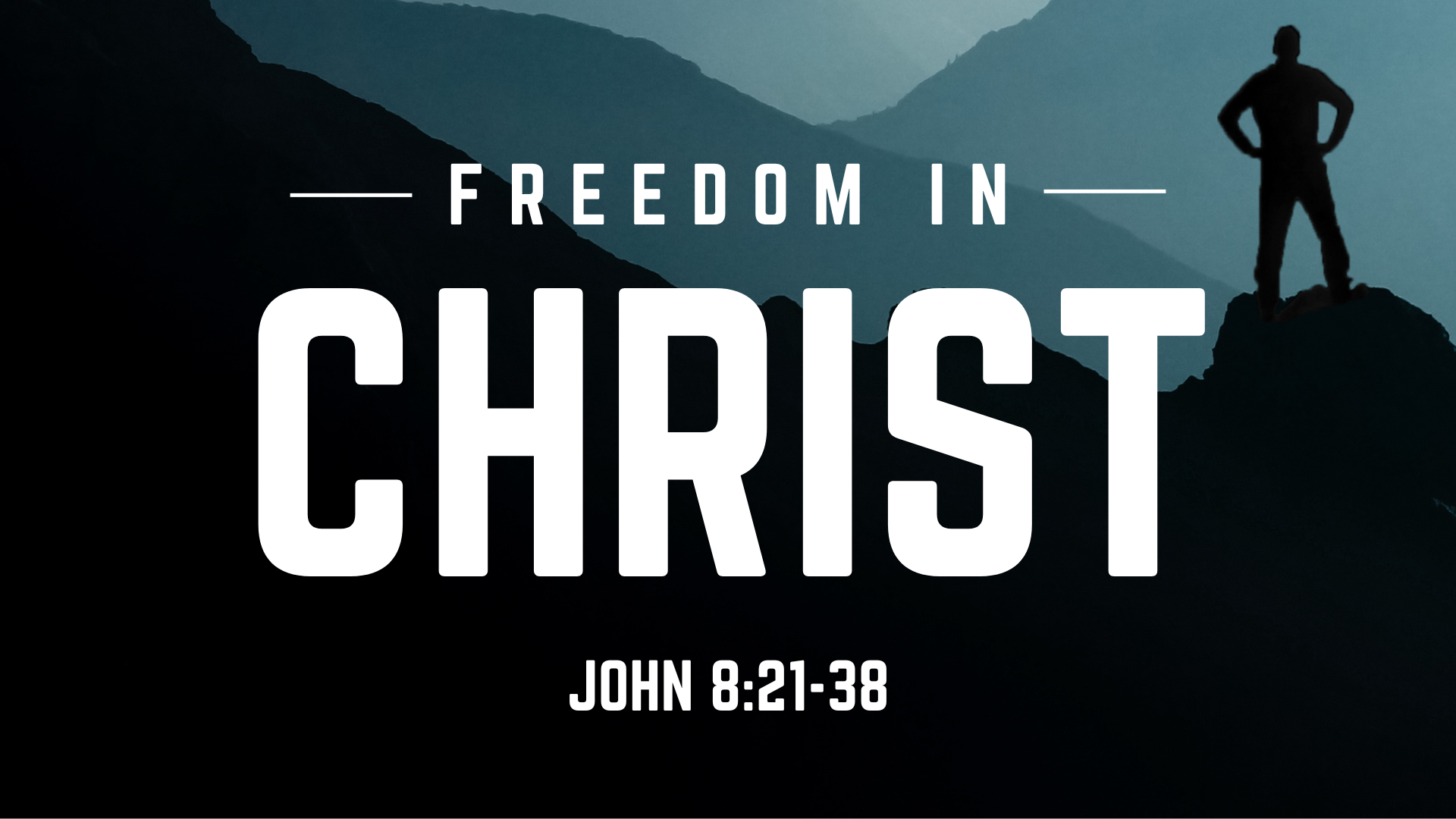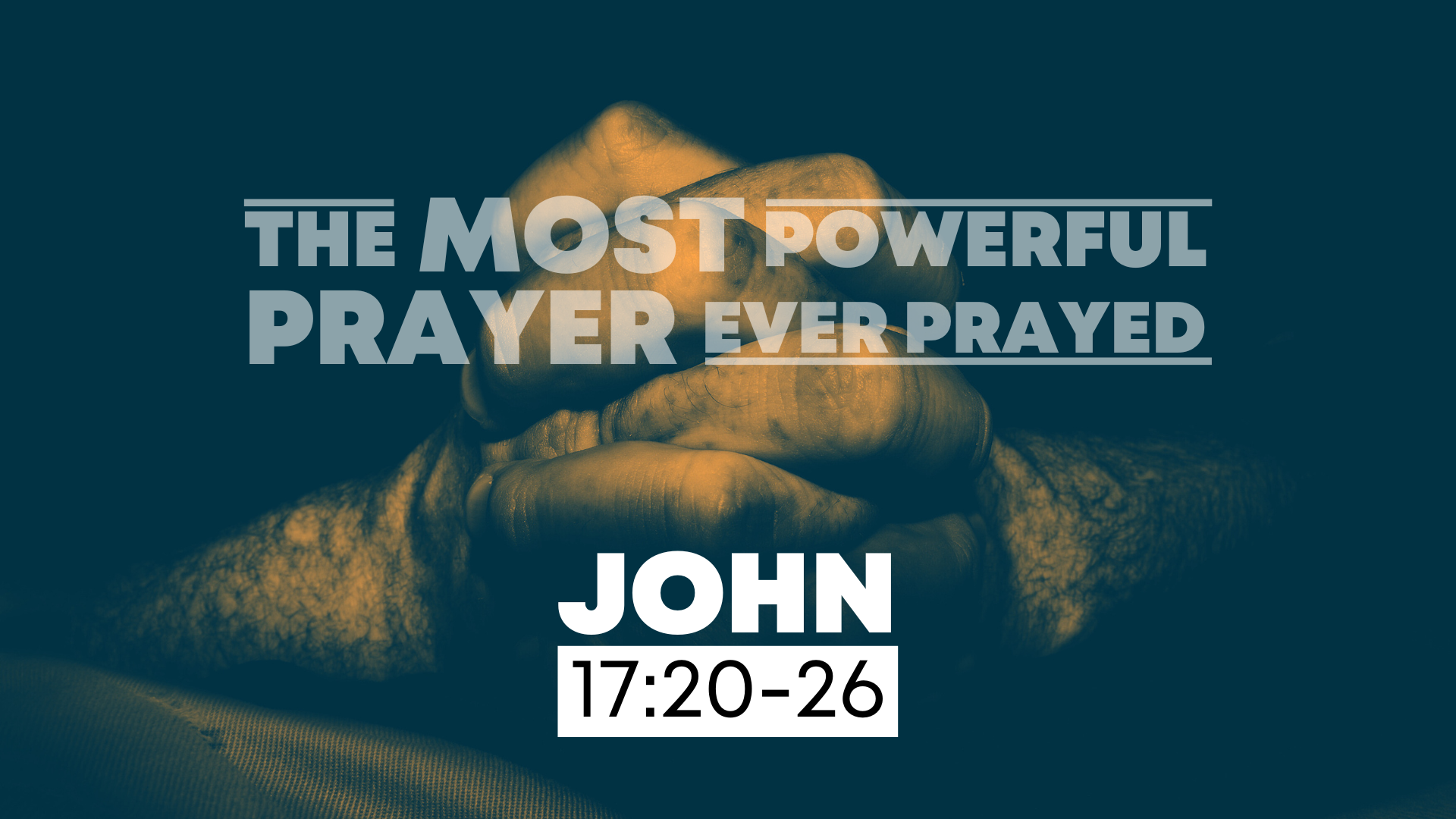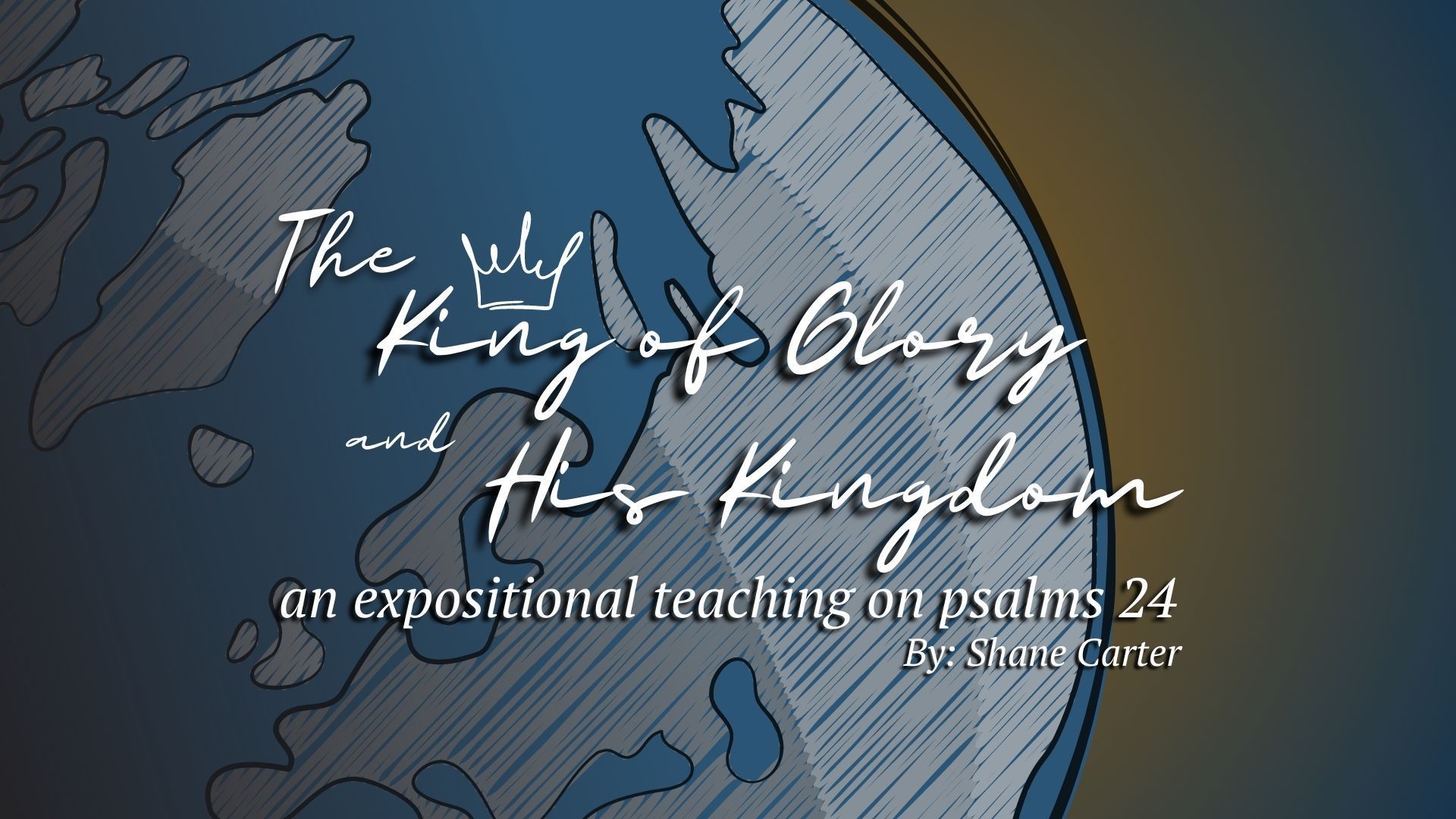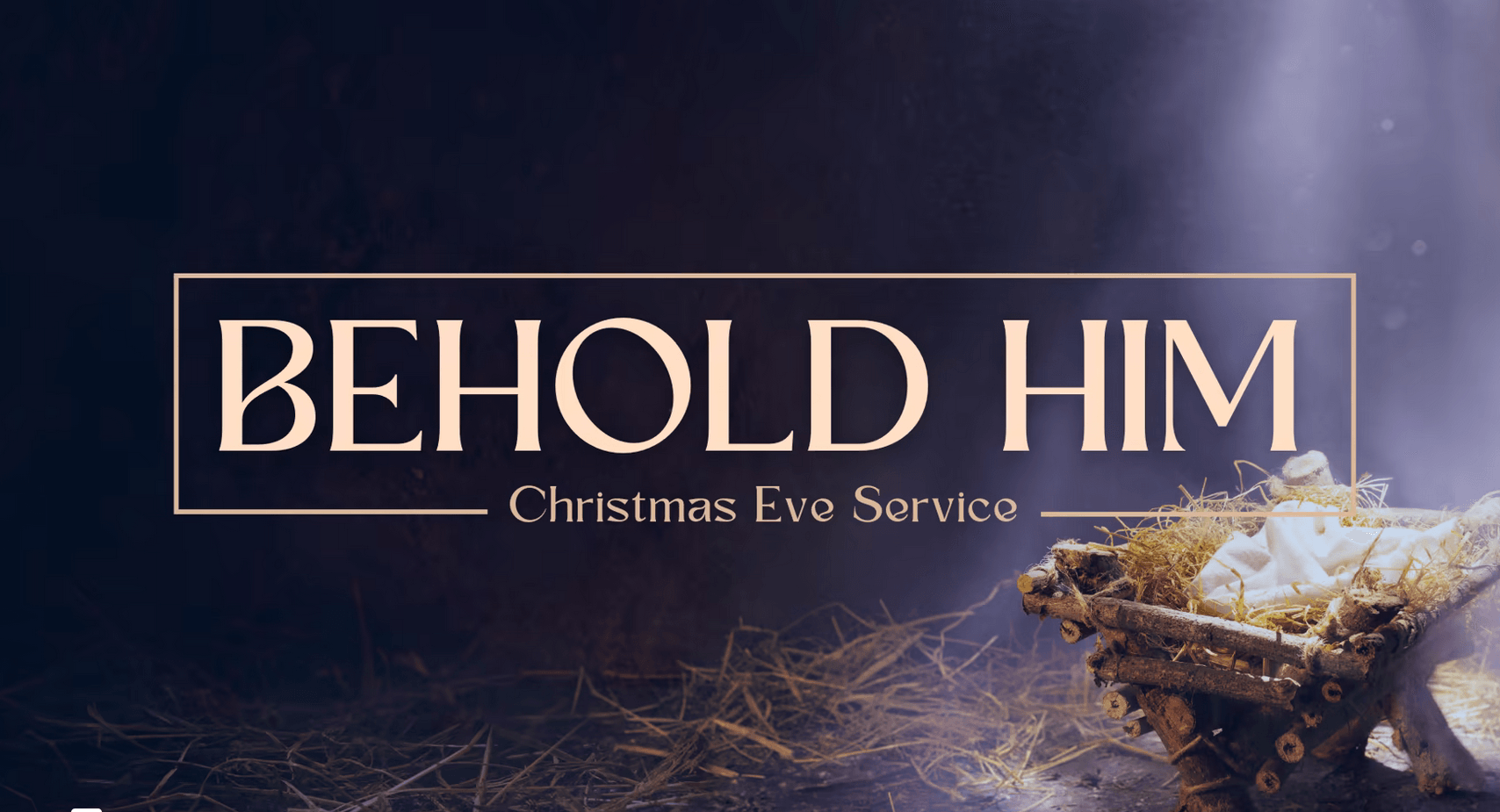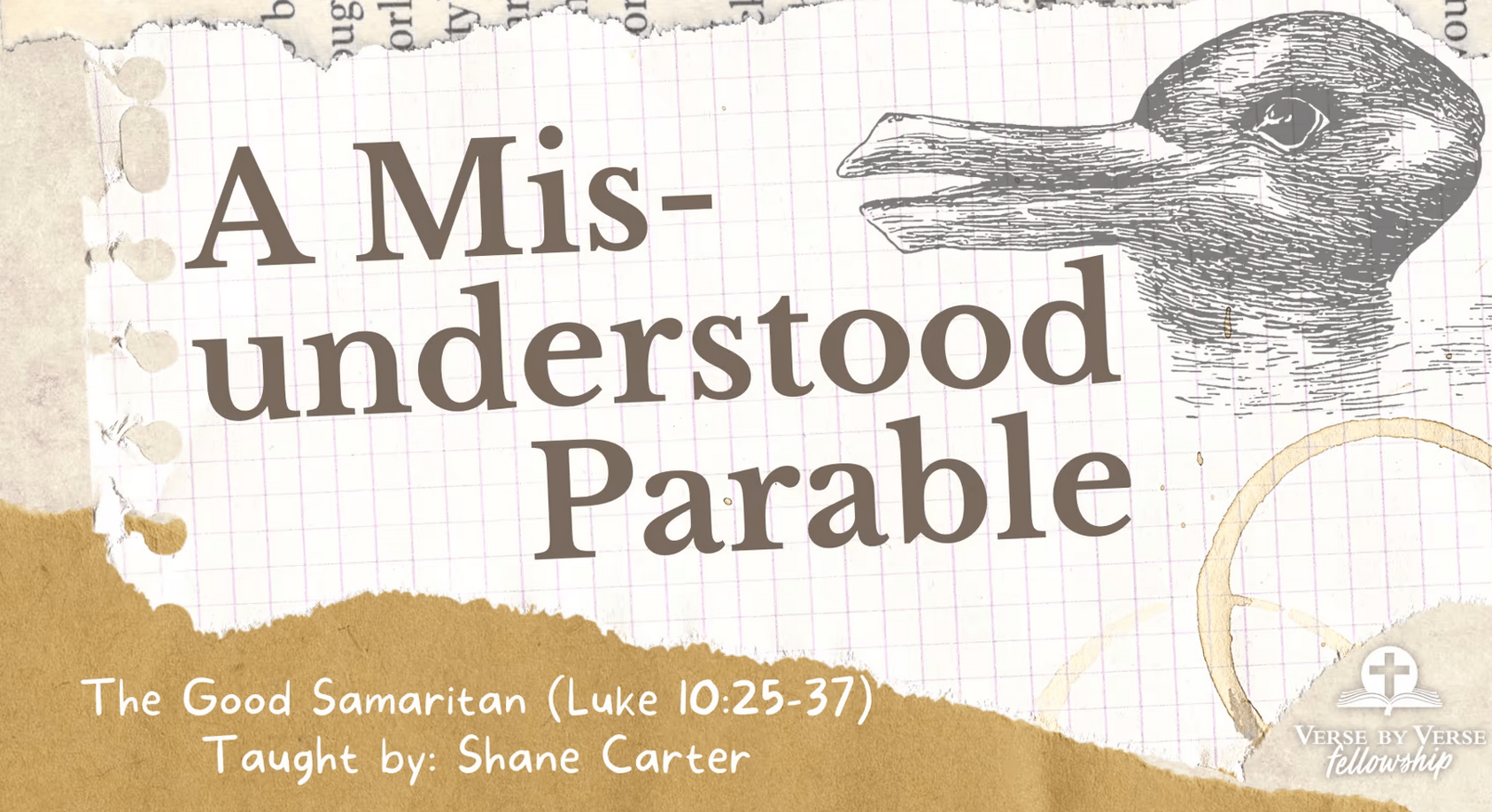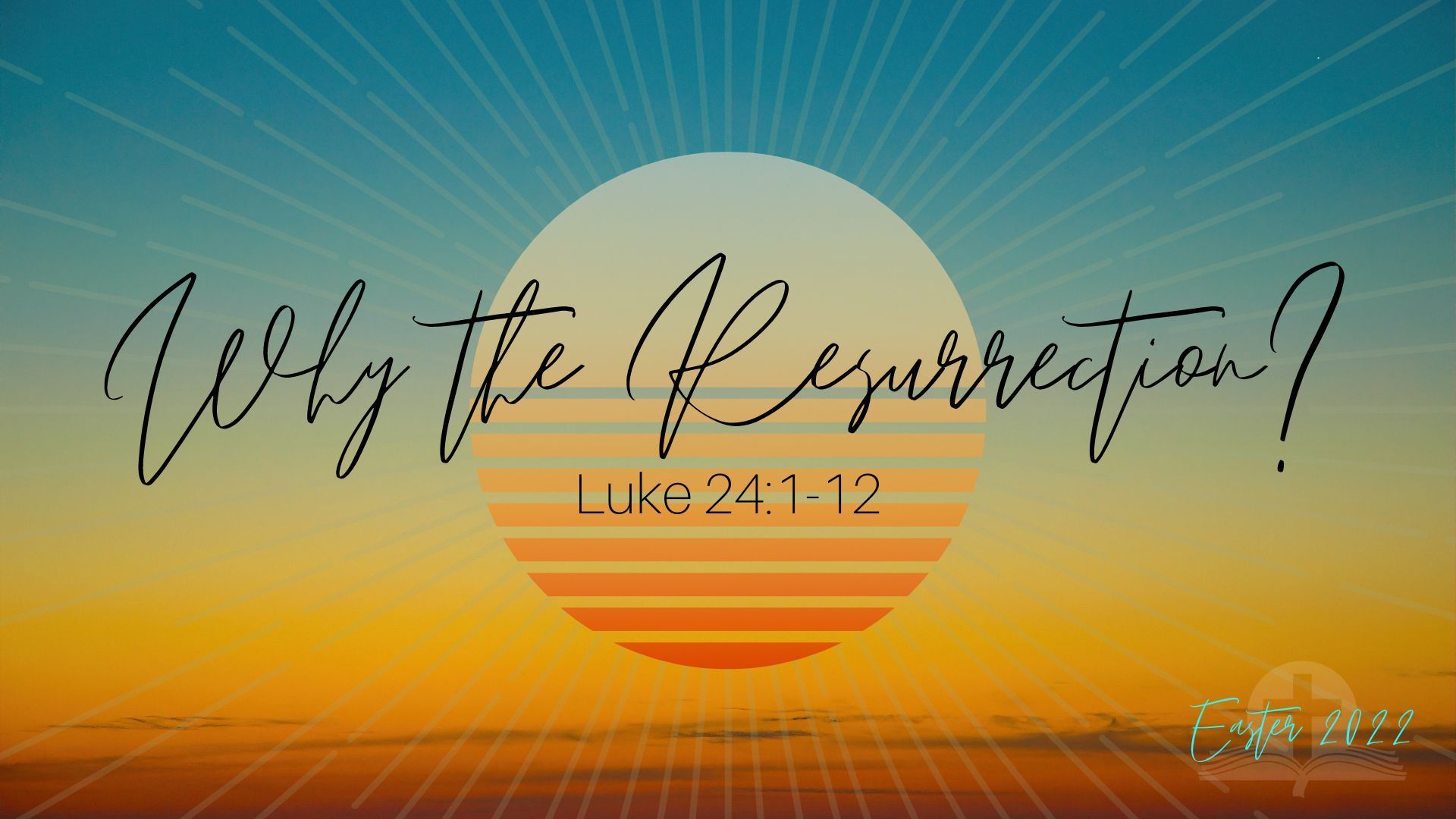INFO
MINISTRIES
TEACHINGS
CONNECT
Sunday Service 9am & 11am
Wednesday Service 7pm
(210) 920-6502
551 E Nakoma St.
San Antonio, TX 78216
MANUSCRIPT
Welcome everyone. Let’s take our Bibles and turn to the book of Exodus, chapter 14. This is the second installment of a series I’ve entitled, “A New Look at the Old Testament.” And for the first installment of that series, we looked at the book of Genesis several weeks ago, specifically the protoevangelium of Genesis 3:15. Today, I want to direct our attention to the second book of the OT, the book of Exodus. And this book is appropriately titled. It’s a book about the Israelites exiting the nation of Egypt and escaping the bondage of slavery and returning to the Promised Land of Canaan.
And when you talk about formative moments in Israel’s history, there is no more important moment in their history than the Exodus. When Moses and the other prophets of the OT talked about God, they would describe God as Yahweh, the God who brought the Israelites out of slavery in the land of Egypt (e.g. Exod 20:2; Lev 19:36; Num 15:41; Deut 5:6; 2 Kings 17:36; Amos 3:1; Mic 6:4). They wouldn’t usually point to the God who created the universe including Adam and Eve, although that was true. They wouldn’t talk about the God who destroyed the Tower of Babel and created diverse people groups and languages all around the world—although that was true too. When the prophets of the OT would remind the Israelites who God was and what God had done for them, inevitably they would refer to the Exodus, this grand event in their history. And the climactic event in the Exodus was Exodus 14 and the great crossing of the Red Sea.
In his commentary on the book of Exodus, Phil Ryken says the following: “Anyone who knows anything about the Bible knows that the children of Israel passed through the sea. This miracle has been acclaimed by composers like George Frideric Handel, actors like Charlton Heston, preachers like Martin Luther King, Jr., writers like Leon Uris, cartoonists like Charles Schulz, animators like Walt Disney, and even singers like Bob Marley: ‘Send us another brother Moses! From across the Red Sea … come to break down ’pression, rule inequality, wipe away transgression, set the captives free.” Who of us hasn’t seen Charlton Heston saying to Yul Brynner, “Let my people go”? This is one of the great moments in human history, folks—the Exodus. And it has a lasting impact upon how we view our faith as NT Christians. I’ll show you that before we are done.
-----------------------------------------------------------------------------------------
So, let’s look at Exodus 14 together. Let me walk you through the four movements of this passage. The first thing that happens in Exodus 14 is this. L
1. God picks a fight with his enemy (14:1-4)
Moses tells us in verse 1,
1 Then the LORD said to Moses, 2 “Tell the people of Israel to turn back and encamp in front of Pi-hahiroth, between Migdol and the sea, in front of Baal-zephon; you shall encamp facing it, by the sea. 3 For Pharaoh will say of the people of Israel, ‘They are wandering in the land; the wilderness has shut them in.’ 4 And I will harden Pharaoh’s heart, and he will pursue them, and I will get glory over Pharaoh and all his host, and the Egyptians shall know that I am the LORD.” And they did so.
Now a little historical context here. Joseph at the end of the book of Genesis invited his entire family, including his father and his brothers, to live in Egypt. And Israel came and made a home there. But several generations after Joseph died, the Israelites were enslaved by the people of Egypt (cf. Exod 1:8-14). In fact, they were enslaved for approximately 400 years (cf. Gen 15:13; Acts 7:6). And they grew to a great nation in that time.
And God used a man named Moses, an Israelite who was raised by Egyptian royalty, to lead the Israelites out of Egypt back to the Promised Land. And when I say God picks a fight with his enemy, you need to know that this fight dates back to ten plagues in Egypt that devastated the Egyptian Empire and embarrassed the proud Pharaoh (cf. Exod 7:14-12:36). God unleashed these plagues to show Egypt and the Israelites who the real God of the Universe was. And it wasn’t any of the gods of the Egyptians! So, when God says in verse 4,
and I will get glory over Pharaoh and all his host, and the Egyptians shall know that I am the LORD.
This is something God has already started. And God is looking for a climactic coup de grâce that will finish off the Egyptians and will sink a memory down deep in the Israelites’ collective conscience, so that they will remember it for centuries. He wants them to say in perpetuity, “We are the people that God saved from Egyptian slavery!”
And also, God raises the stakes here too. Look again at verse 2.
2 “Tell the people of Israel to turn back and encamp in front of Pi-hahiroth, between Migdol and the sea, in front of Baal-zephon; you shall encamp facing it, by the sea.
You see the Israelites were outside of Egypt by this point. They were headed to Mt. Sinai. And for whatever reason, God tells them to go back and encamp in front of the sea. God actually told them to camp facing the sea. Do y’all see that in verse 2? Just so you know, that is an indefensible position if you have an Egyptian army chasing after you. If the Egyptian army came after them, they would be totally vulnerable. In the words of OT scholar, Christopher Wright, they would be, “trapped between the devil and the deep blue Sea.” There was nowhere to run, and nowhere to hide. Why would God have them do that? Stay tuned and we’ll see.
-----------------------------------------------------------------------------------------
Not only does God pick a fight with his enemy, but here’s the second movement in this passage…
2. God tests the mettle of his followers (14:5-12)
Look at verse 5 with me. Here’s what’s going on in Egypt.
5 When the king of Egypt was told that the people had fled, the mind of Pharaoh and his servants was changed toward the people, and they said, “What is this we have done, that we have let Israel go from serving us?”
Panic starts to set in on the Egyptians after they realize that they’ve lost their slave labor. So, what do they decide to do? Well look at verse 6.
6 So he made ready his chariot and took his army with him, 7 and took six hundred chosen chariots and all the other chariots of Egypt with officers over all of them.
Now let me comment here on the chariot. The chariot was the greatest instrument of warfare in the ancient world at this time. This was like the submarine for the Germans at the beginning of WW2. This was like the B-29 bomber for the Americans at the end of WW2. If you had chariots, and six hundred of them to boot, you’d be like a squadron of tanks fighting against Indians with bows and arrows.
And just to be clear, how many chariots did the Israelites have? The answer is 600 less than the Egyptians. They had none. And besides that they had women and children and animals and possessions. This was like a group of refugees traveling from country to country taking on a modern military. This was going to be a slaughter! Probably Pharaoh wasn’t even going to have to fight them. He was just going to intimidate them back to Egypt and back to bondage as slaves.
8 And the LORD hardened the heart of Pharaoh king of Egypt, and he pursued the people of Israel while the people of Israel were going out defiantly. 9 The Egyptians pursued them, all Pharaoh’s horses and chariots and his horsemen and his army, and overtook them encamped at the sea, by Pi-hahiroth, in front of Baal-zephon.
Those are the same geographical pointers that Moses mentioned earlier in verse 2. Pharaoh has Moses and the Israelites trapped with their backs to the sea. Duane Garrett says it this way in his commentary: “We need to realize that under normal circumstances the Israelites would have been no match for the Egyptian chariots. Untrained peasants who only days before had been working as slaves, the Hebrews would have scattered like fallen leaves in a storm before a properly executed Egyptian attack.” The situation could not have been worse for the Israelites.
And watch what happens with the Israelites when they see this.
10 When Pharaoh drew near, the people of Israel lifted up their eyes, and behold, the Egyptians were marching after them, and they feared greatly.
They feared greatly! Yeah, and we would too. Don’t get all judgmental on the Israelites. We would have feared greatly too. Does God put us in situations sometimes where we are fearful and have to trust in him? Absolutely he does!
And the people of Israel cried out to the LORD. 11 They said to Moses, “Is it because there are no graves in Egypt that you have taken us away to die in the wilderness? What have you done to us in bringing us out of Egypt?
Ouch! That’s not a nice thing to say to Moses or the LORD! By the way there’s a comical irony in this statement. The Israelites are being more than a little sarcastic. Because what is Egypt famous for? The pyramids, right? Most of those pyramids were built before Abraham even came to Egypt, let alone Joseph and the Israelites. And what are pyramids? They are just huge, impressive graves! Of course there are graves in Egypt; Egypt is famous for them! So why would Moses bring them out to the wilderness to die there?
12 Is not this what we said to you in Egypt: ‘Leave us alone that we may serve the Egyptians’? For it would have been better for us to serve the Egyptians than to die in the wilderness.”
By the way, that’s not entirely accurate. There’s some revisionist history going on here with these Israelites. When Moses first told them he was leading them out of Israel, they said, “Amen, Hallelujah. Let me pack my bags!” (cf. Exod 4:29-31). But now, fear gets the best of them and they doubt God and they doubt their leader, Moses. That never happens to us, does it? Fear never gets the best of us as Christians, does it?
-----------------------------------------------------------------------------------------
Now watch this. Watch how Moses leads the people! This is good leadership right here. Look at verse 13.
13 And Moses said to the people, “Fear not, stand firm, and see the salvation of the LORD,
Can I give you a loose modern-day translation of this? Here it is. “Man up, Israelites! Fear not! Stand firm. Trust God!” Paul says something similar to this in 1 Corinthians 16:13: “Be watchful, stand firm in the faith, act like men, be strong.”
Moses said to the people, “Fear not, stand firm, and see the salvation of the LORD, which he will work for you today. For the Egyptians whom you see today, you shall never see again. 14 The LORD will fight for you, and you have only to be silent.”
Now this is where Moses has special revelation regarding his circumstances that no leader in our day would be able to imitate. Moses knows that the LORD is going to do something marvelous here and fight for the Israelites. And Moses has seen this already in Egypt. How did the Israelites get out of Egypt? Did they fight off the Egyptians? No. They just sat back and watched God bring plague after plague after plague upon the Egyptians. And they didn’t do squat. Now Moses says confidently, God has brought us this far, he’s got something up his sleeve that’ll get us out of this jam. Just be calm and fear not.
14 The LORD will fight for you, and you have only to be silent.”
So, here’s the third movement in this passage.
3. God supplies salvation to his people (14:13-29)
So, how’s this going to happen? How’s the LORD going to fight for his people? They are trapped between the Red Sea and the Egyptian army. They are hopelessly outmaneuvered and outgunned.
They’ve got women and children and livestock all around them. What is God going to do to save them? I don’t think any of them expected what happened next.
And I just want to challenge you for a moment to put yourselves into the shoes of the Israelites. Just pretend with me that you haven’t seen “The Ten Commandments” with Charlton Heston twenty times as a kid. Just pretend with me that you have never seen “The Prince of Egypt,” or read about the Exodus in the Bible or in the Children’s Bibles you read to your kids. Would you ever anticipate what God does next?
I mean just think about it. If you were one of the Israelites, and Moses told you, “Fear not… The LORD will fight for you, and you have only to be silent.” What would you think God would do next? Maybe fire from heaven? Maybe he’ll rain down sulfur like Sodom and Gomorrah? Maybe more plagues? Maybe the angel of death shows up and just whomps the enemy? I don’t think any of them could have anticipated what God does next. It is absolutely original what God does next.
Watch what happens. Look at verse 15.
15 The LORD said to Moses, “Why do you cry to me?
That’s kind of funny, because Moses wasn’t the one crying out, it was the Israelites. But God talks to Moses as if he represents the people, which he does. He’s the mediator. More on that later.
15 The LORD said to Moses, “Why do you cry to me? Tell the people of Israel to go forward. 16 Lift up your staff, and stretch out your hand over the sea and divide it, that the people of Israel may go through the sea on dry ground.
What! What in the world! I bet Moses and the Israelites didn’t see that coming! So, Moses is supposed to just stretch out his hand over the sea, and the sea is going to divide in two. In fact, the Hebrew here for divide is the word בָּקַע which means to “split” or “chop.” Moses was supposed to, in effect, karate chop the Red Sea in two. I’ll just tell you, that is not how I remember Charlton Heston doing it in “The Ten Commandments.” That’s more of a “Chuck Norris move” than a “Charlton Heston move.”
17 And I will harden the hearts of the Egyptians so that they shall go in after them, and I will get glory over Pharaoh and all his host, his chariots, and his horsemen. 18 And the Egyptians shall know that I am the LORD, when I have gotten glory over Pharaoh, his chariots, and his horsemen.”
Notice the repeated use of chariots and horsemen here. Remember this is the equivalent of tanks, submarines, and B-29 bombers in the ancient world. So, this is God’s way of saying, “the Egyptians and their weapons ain’t got nothin’ on me.” That’s why David says in Psalm 20:7, “Some trust in chariots and some in horses, but we trust in the name of the LORD our God.”
19 Then the angel of God who was going before the host of Israel moved and went behind them, and the pillar of cloud moved from before them and stood behind them, 20 coming between the host of Egypt and the host of Israel. And there was the cloud and the darkness. And it lit up the night without one coming near the other all night.
So just a little background here. God led the Israelites throughout the wilderness in a pillar of cloud by day, and a pillar of fire by night. And now this pillar is going to move behind the Israelites and create a barrier between them and the Egyptians. This will prevent the Egyptians from chasing after the Israelites as they cross the Red Sea.
21 Then Moses stretched out his hand over the sea, and the LORD drove the sea back by a strong east wind all night and made the sea dry land, and the waters were divided. 22 And the people of Israel went into the midst of the sea on dry ground, the waters being a wall to them on their right hand and on their left.
There’s a great moment in the movie “The Prince of Egypt” where this is represented. And a bolt of lightning lights up this huge wall of water. And you see the imprint of a whale and other sea creatures behind that wall. It’s a great cinematic moment. And I think it captures the grandeur and the awe of this moment. The Israelites are crossing the sea on dry ground and a wall of water is on either side of them. And a pillar of fire is preventing the Egyptians from chasing after them. Let me just say, that if I had a time machine and time travel was possible, I would love to have been there for this moment.
And now… look at verse 23.
23 The Egyptians pursued and went in after them into the midst of the sea, all Pharaoh’s horses, his chariots, and his horsemen. 24 And in the morning watch the LORD in the pillar of fire and of cloud looked down on the Egyptian forces
So, I assume at this point that the pillar of fire rose like a drawbridge above the Egyptians and let them pass into the sea. And now it is above the sea looking down on them…
and [the LORD] threw the Egyptian forces into a panic, 25 clogging their chariot wheels so that they drove heavily. And the Egyptians said, “Let us flee from before Israel, for the LORD fights for them against the Egyptians.”
You’d think they would have come to that recognition after the plagues in Egypt. They should have thought about this before they decided to chase God’s people into a seabed with a wall of water miraculously being held back on either sides of them!
26 Then the LORD said to Moses, “Stretch out your hand over the sea, that the water may come back upon the Egyptians, upon their chariots, and upon their horsemen.” 27 So Moses stretched out his hand over the sea, and the sea returned to its normal course when the morning appeared. And as the Egyptians fled into it, the LORD threw the Egyptians into the midst of the sea. 28 The waters returned and covered the chariots and the horsemen; of all the host of Pharaoh that had followed them into the sea, not one of them remained. 29 But the people of Israel walked on dry ground through the sea, the waters being a wall to them on their right hand and on their left.
By the way, God takes a parting shot here at the god of the Egyptians, the sun god, Ra. Moses says that when “the morning appeared” this happened in verse 27. The sun is rising. This would be the time for the sun god to come to the rescue of the Egyptians. But Ra is not a true god. Yahweh is the true God, and he shows his power over Egypt, over Pharaoh, over the sun, over creation, over the waters. And not only do the Israelites testify that God fights for Israel, but the Egyptians just before death declare that the LORD fights for Israel.
-----------------------------------------------------------------------------------------
And what do the Israelites do next? What happens next on the other side of the Red Sea? Well in chapter 15, the Israelites do something that we do every Sunday. They break out in song. They sing praises to Yahweh. “Hallelujah, praise the LORD.” “The horse and his rider he has thrown into the sea” (Exod 15:1). But even before they do that, here’s what they do—look at 14:30.
30 Thus the LORD saved Israel that day from the hand of the Egyptians, and Israel saw the Egyptians dead on the seashore.
By the way, it was incredibly ironic that the Egyptians died by drowning in the Red Sea, because the book of Exodus opens with Pharaoh trying to drown the children of Israel in the Nile River.
31 Israel saw the great power that the LORD used against the Egyptians, so the people feared the LORD, and they believed in the LORD and in his servant Moses.
That’s the final movement in this passage: 1) God picks a fight with his enemy, 2) God tests the mettle of his people, 3) God supplies salvation to his people, and then fourthly…
4. God’s people believe in the God of their salvation (14:30-31)
-----------------------------------------------------------------------------------------
That’s Exodus 14! That’s the great event of Israelite history, that God reminds them about again and again in the OT. God picks a fight with his enemy. God tests the mettle of his people. God supplies salvation to his people. and then finally, God’s people believe in the God of their salvation.
Now, here’s what I want to do in the time that I have left. I have three topics that I want to cover. I want to talk chronology, geography, and typology. And then we’ll be done. Like I said already, this is a signature moment in Biblical history, so our understanding of it is important. And that starts with chronology.
Let me just tell you that there are two sound views on the timing of the Exodus. And there is one not so sound view. I’ll start with the not sound view.
1) The non-conquest Theory (dates are unspecified) – There is a stream of scholarship that sees the Exodus as pure literary fiction. Not just the crossing of the Red Sea, but also their departure of Egypt and the conquering of the Promised Land. They believe that the Israelites of the ancient world actually just slowly took over certain parts of Canaan and then wrote a fabricated story of the Exodus to justify their existence in the land. Believe it or not, this view is actually quite prominent in some Jewish circles. A famous Jewish archaeologist named Israel Finkelstein is a major proponent of this view, as are several American, European, and Israeli archaeologists.
2) Late Date Theory (approx. 1250 BC) – A second view is what’s called the late date view. This is the view that the Exodus took place in approximately the Thirteenth Century BC (generally around 1250 BC). This view is held by some of my OT professors at Trinity where I did my PhD studies. And even early date proponents like Eugene Merrill and Duane Garrett have argued that the archaeology of the Promised Land sometimes favors the late date.
3) Early Date Theory (approx. 1446 BC) – A third view is what’s called the early date view. This is my view, and it’s the classical view of Christianity and Judaism. This is the view that the Exodus took place in the middle of the Fifteenth Century BC (approx. 1446 BC). This dating comes from a more precise understanding of a few passages of Scripture. If King David lived in approximately 1000 BC, which almost everyone agrees that he did based upon back-dating from Assyrian chronicles and solar eclipse dating. And if we agree that Solomon began building the temple in approximately 966 BC, then we take 1 Kings 6:1 where it says, “In the four hundred and eightieth year after the people of Israel came out of the land of Egypt, in the fourth year of Solomon’s reign over Israel, in the month of Ziv, which is the second month, he began to build the house of the LORD.” Then we simply add 480 years to 966 and get 1446 BC as the date of the Exodus. Additional evidence for this is found in Judges 11 where Jephthah says that 300 years before him the Israelites were in the Promised Land. That gives greater evidence for me of an early date Exodus in the middle of the Fifteenth Century.
By the way, if you want to keep the chronology of the OT simple, let me give you a few key, memorable dates: 1) 2,000 BC, 2) 1,500 BC, 3) 1,000 BC. Abraham lived in approximately 2,000 BC. Moses lived in approximately 1,500 BC. And David lived in approximately 1,000 BC. They were 500 years apart from each other. And if you want, you can add to that the approximate date of 500 BC. That’s when the Israelites came back from captivity in Babylon. That’s how we construct the chronology of the OT.
Now let’s talk geography. One of the sticky issues that we run into with OT events is trying to locate those events in space and time. We’ve talked about time; let’s talk about space. Where did the Exodus take place? This event took place on our planet, not on middle earth. But it was also 3,500 years ago, and our planet has changed since then. So, the question for OT scholars and archaeologists is twofold: 1) Where did the Red Sea crossing take place? and 2) Where is Mount Sinai? Let me give you three views on that—all of them reputable.
1) Southern Sinai Route Theory – The classical view is that Moses led the Israelites out of Egypt across the “Red Sea” (more technically “the Sea of Reeds”) and over to Mt. Sinai on the northern side of the Sinai Peninsula. That’s a perfectly reputable view.
2) Northern Sinai Route Theory – The second view is that Moses led the Israelites out of Egypt across Lake Ballah or Lake Timsah or one of the other northern Egyptian lakes to Mt. Sinai on the northern side of the Sinai Peninsula. Again, another perfectly reputable view.
3) Gulf of Aqaba Theory – The best view, which is a minority view, is that Moses led the Israelites across the Sinai Peninsula and crossed the Gulf of Aqaba to the Arabian Peninsula. And that’s where Mt. Sinai is located. I’ll give you a few reasons why I think that. 1) The Hebrew word for “wall” (חוֹמָה) indicates a large wall. This indicates a large body of water not a shallow lake. 2) And the Hebrew יָם (“sea”) also indicates a large body of water. Now it could indicate a lake, but it would have to be a pretty substantial lake. I’m more inclined to see this usage as the Gulf of Suez or the Gulf of Aqaba than one of the shallow lakes in northern Egypt. And by the way, Moses doesn’t say Red Sea in Exodus 14. More technically what he says is “Sea of Reeds” or yam suph (Heb. יָם סוּף). Many people have assumed that one of the northern lakes of Egypt is what Moses was referring to because “reeds” (water plants) are plentiful there. But the word סוּף is a homonym in Hebrew. It can also mean “end” or “edge” (more technically סוֹף). So, it’s possible that Moses didn’t mean “sea of reeds” when he wrote יָם סוּף, but meant “sea at the end.”
And that’s what the Gulf of Aqaba is referred to as in 1 Kings 9:26 when Solomon constructs his fleet of ships at the Gulf of Aqaba, which 1 Kings 9:26 calls יָם סוּף. It was at the end or bottom of Israel’s kingdom. It was “sea at the end.” 3) Moses also met up with his father-in-law, who was a Midian after they crossed the Red Sea. This is where Moses ran off to after fleeing Egypt for his life. Well, historically Midian is not located on the Sinai Peninsula, but on the Arabian Peninsula. So, it makes sense to me, that Moses crossed the Gulf of Aqaba, and then took the Israelites to Mt. Sinai (They didn’t call the Sinai Peninsula the Sinai Peninsula back then… that’s a later appellation based upon people thinking that Mt. Sinai was on the “Sinai Peninsula”). And after wandering in the desert of Midian, they travelled up to the Promised Land. Are there a few holes in that theory? Yes. But not as many as others. 4) And the final reason I hold to this theory is because what Paul says in the New Testament. Paul refers to Mt. Sinai in Galatians 4:24-25. And he says there that this is on the Arabian Peninsula not the Sinai Peninsula. Which body of water must one cross to get to a Mt. Sinai on the Arabian Peninsula, which is also historic Midian? The answer is the Gulf of Aqaba.
Now I want to be careful here. This kind of stuff is fun to debate. It’s fun to investigate. It’s fun to wrangle over even vigorously. I love that about my educational process at Moody and Trinity. At both of those schools, we were encouraged to argue our view vociferously. But at the same time, we were encouraged to never confuse essential and nonessential issues. “Keep the main things, the main things” as Alistair Begg likes to say. “The main things are the plain things, and the plain things are the main things.” The core concepts that we need to take away from the Exodus event are that historical facts that God led his people out of Egypt, crossed them over a great body of water, and defeated the Egyptian army that pursue them. Those are indisputable facts, people.
And to that, you might say, okay Pastor Tony. Awesome. God is awesome. But how do I apply this passage to my life? What do we do with this OT passage? Should we expect God to part the waters for us the next time we walk down to the Gulf of Mexico? No.
You see there are some passages in Scripture that are descriptive, and there are some passages that are prescriptive. When God says “Thou shalt not commit adultery,” that’s prescriptive for us. When God tells Moses to split the Red Sea so the Israelites can walk through it, that’s descriptive.
But that doesn’t mean that God doesn’t have something to teach us here. Paul says that “All Scripture is breathed out by God and profitable for teaching, for reproof, for correction, and for training in righteousness, that the man of God may be complete, equipped for every good work” (2 Tim 3:16-17). So, let’s talk about the 2 Timothy 3:16-17 implications of Exodus 14. I’ll give you three. And I’m framing this section under the heading of “typology.” There is an OT type or pattern at work here in the OT, that is superseded by an antitype in the NT. And these three principles are derived from that typology.
Here’s the first:
1) Salvation is from the LORD
Question: Why did the Lord take the Israelites out to the middle of the wilderness and put them in an incredibly vulnerable place with a sea in front of them and the Egyptians threatening them from behind? Answer: Because God wanted the Israelites to know, when he saved them, that he, and he alone, was responsible for saving them. And God didn’t just do it for the Israelites. He also did it for the pagan Egyptians. Look at verse 4.
4 And I will harden Pharaoh’s heart, and he will pursue them, and I will get glory over Pharaoh and all his host, and the Egyptians shall know that I am the LORD.”
You know what we learn in the NT as well. Salvation is not about how smart you are, how clever you are, or how spiritually-minded you are. Salvation is completely and utterly an act of God’s grace. And you get zero glory and honor for your own salvation. I get zero glory and honor for my own salvation or even your salvation, if I lead you to Christ. Salvation is from the LORD. It’s his work. And he gets the praise for it! So we need to do like the Israelites do in Exodus 15. We need to get the tambourine and get the instruments out and start worshipping the LORD, because he deserves the praise for our salvation, not us.
2) Salvation is by faith not works
The British Bible scholar Alec Motyer was at a conference sponsored by R.C. Sproul once. And Sproul said to Motyer, “Tell us about the connection between the Old and New Testaments.” And Motyer replied something like this: “Think about it. Think of what an Israelite would say on the way to Canaan after passing through the Red Sea. If you asked an Israelite, ‘Who are you?’ he might reply, ‘I was in a foreign land under the sentence of death and in bondage, but I took shelter under the blood of the lamb. And our mediator led us out, and we crossed over. Now we’re on our way to the Promised Land, though we’re not there yet. But he has given us his law to make us a community, and he has given us a tabernacle because we must live by grace and forgiveness. And he is present in our midst, and he will stay with us until we arrive home.’” Then Motyer added, “That’s exactly what a Christian says—almost word for word.”
Even Paul said in 1 Corinthians 10, “For I do not want you to be unaware, brothers, that our fathers were all under the cloud, and all passed through the sea, and all were baptized into Moses in the cloud and in the sea … Now these things took place as examples for us, that we might not desire evil as they did.” And there’s certainly a way for us to interpret this passage moralistically. Don’t complain like the Israelites in the wilderness. Don’t defy your leaders, like the Israelites defied Moses. That’s appropriate here. But the bigger thing that God is communicating to us through his Word is that we are utterly helpless to save ourselves. We’ve got to put our faith in God. We’ve got to lean on the power that he gives.
And the best illustration of that is in the text, in verses 13-14.
13 And Moses said to the people, “Fear not, stand firm, and see the salvation of the LORD, which he will work for you today.”
That sentence right there is awfully close to Ephesians 2:8-9. “For by grace you have been saved through faith. And this is not your own doing; it is the gift of God, not a result of works, so that no one may boast.” The Israelites got saved, just like we did… by doing nothing! By putting their faith in the God of the Universe!
Charles Spurgeon, writing on this passage, says the following: “I dare say you will think it a very easy thing to stand still, but it is one of the postures which a Christian soldier learns not without years of teaching. I find that marching and quick marching are much easier to God’s warriors than standing still. It is, perhaps, the first thing we learn in the drill of human armies, but it is one of the most difficult to learn under the Captain of our salvation. The apostle seems to hint at this difficulty when he says, ‘Stand fast, and having done all, still stand’ [Eph 6:13]. To stand at ease in the midst of tribulation, shows a veteran spirit, long experience, and much grace.”
By the way that word for “salvation” in verse 13 in Hebrew is the word יְשׁוּעָה.
“Fear not, stand firm, and see the salvation of the LORD, which he will work for you today.”
It’s no coincidences that our Savior’s name was Yeshua or as we say it in English, “Jesus.”
And then Moses says in verse 14,
14 The LORD will fight for you, and you have only to be silent.
“Just do nothing,” says Moses. “You want to be saved, Israelites? You want to get out of this jam? Don’t pick up a sword. Don’t run away. Don’t talk yourself out of this situation. You just be quiet and let God do the saving. You just stand still!” What does that sound like? Doesn’t that sound like the NT principle of salvation? It sounds like Romans to me.
3) Salvation has a mediator
It’s so fascinating how this passage ends in verse 31. Moses says, “and they believed in the LORD and in his servant Moses.” Why did they believe in the LORD and in Moses? Here’s why. Because Moses was their mediator. They were terrified to come to God directly, so they came through a mediator. And by the way, that was no picnic for Moses. He didn’t want that job.
Why does God say to Moses in verse 15, “Why do you cry to me?” Moses didn’t cry out to God. The Israelites cried out to God. That’s clear from verse 10. But Moses was their mediator. And this wasn’t the only time that this happened. Moses later interceded for the Israelites and told God to kill him and not the Israelites (cf. Exod 32:32). He offered himself as atonement for the Israelites. Now God didn’t take Moses up on that offer, but Moses did say in Deuteronomy 18:15, “The LORD your God will raise up a prophet like me from among you…it is to him you shall listen.” Who’s he talking about there? Who’s Moses talking about there? Yeshua, right?
And Jesus, that true and better Moses, not only offered up himself as atonement for sinners, but actually died as a sacrifice for sinners. We saw last time that Jesus was the serpent crusher of Genesis 3:15. We see today that Jesus was the true and better Moses who suffered as our mediator so that we might cross over from death to life, receiving the salvation of the LORD. Blogger Whitney Woollard says it this way: “Whereas Moses was sent to deliver the nation of Israel out of physical slavery in Egypt, Jesus was sent to deliver people from all nations out of spiritual slavery to sin in their hearts… Whereas Moses only spoke the words he received from God, Jesus came as the very Word of God… Whereas Moses came as a recipient of the Law, Jesus came to fulfill the Law… Whereas Moses’ face shone with the reflection of the heavenly glory he had seen, Jesus’ shone like the sun with His own divine glory…
Whereas Moses mediated temporarily between God and man by the Law, Jesus mediates eternally between God and man by the shedding of His own blood.”
Jesus is the true and better Moses, people. He’s our true and better mediator… better even then Moses. And only he can help us to cross over from death to life. Believe in him.

Taught by Dr Tony Caffey
Senior Pastor of Verse By Verse Fellowship
Single Teachings




